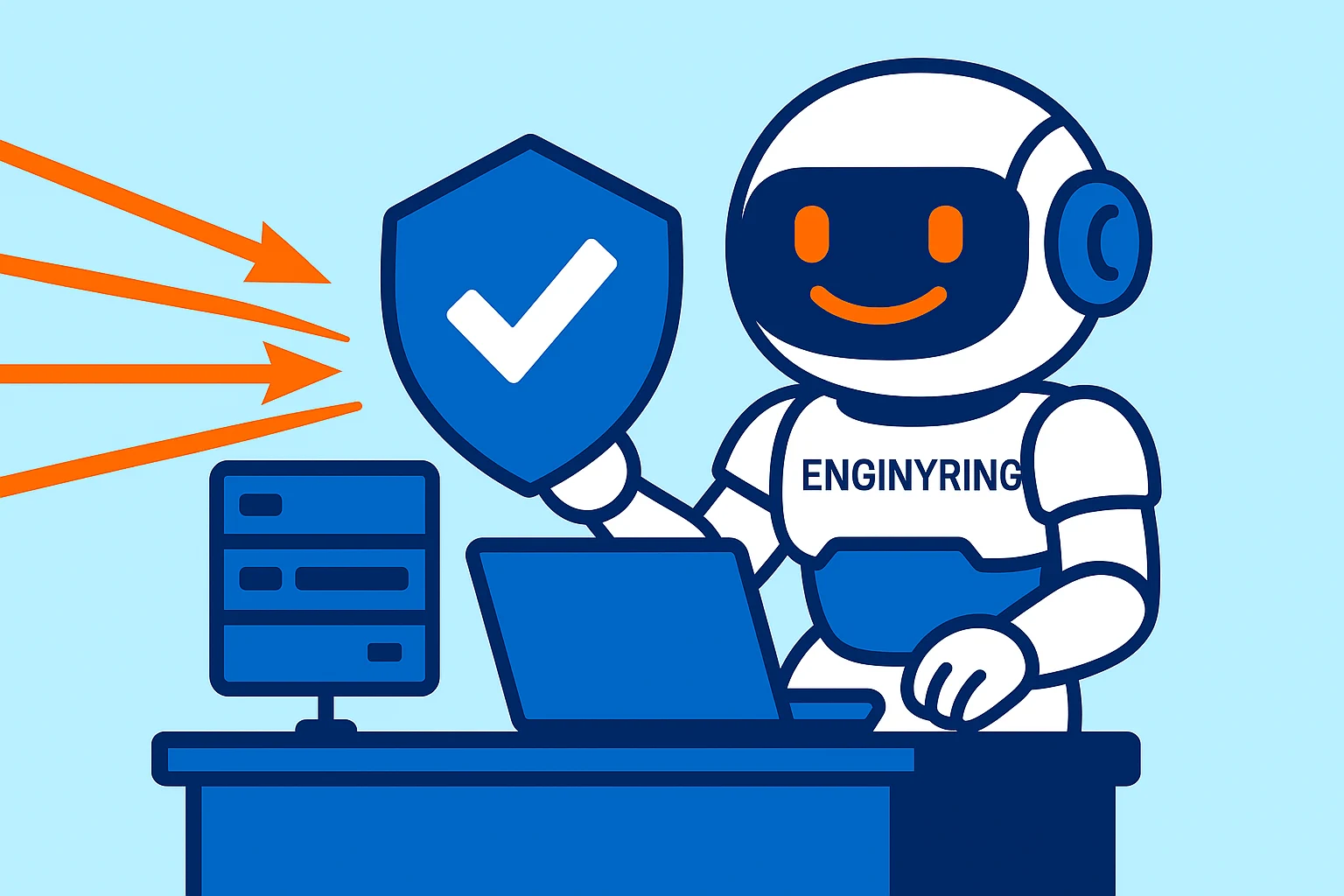
A Beginner’s Guide to DNS Security: Why It Matters for Your Website
Introduction to DNS Security
The internet, as we know it today, relies heavily on the Domain Name System (DNS). It is the backbone of the web, functioning as the digital directory that translates human-readable domain names (like www.example.com) into numerical IP addresses that computers use to locate each other on the network. However, despite its critical role, DNS is often overlooked when it comes to website security.
Understanding DNS security is crucial for any website owner. Without proper security measures, your website could fall victim to various cyber threats, including DNS spoofing, cache poisoning, and Distributed Denial of Service (DDoS) attacks. These attacks can lead to downtime, data breaches, and loss of user trust.
In this guide, we will explore the importance of DNS security, common threats, and best practices to safeguard your website. By the end, you will understand why securing your DNS infrastructure is a foundational step in protecting your online presence.
Understanding DNS: The Basics
Before diving into DNS security, it’s essential to understand how DNS works. DNS acts like a phonebook for the internet, translating domain names into IP addresses. Here’s how a typical DNS query works:
- User Request: When a user types a website URL into their browser, a DNS query is initiated.
- Recursive Resolver: The query first goes to a recursive resolver, which searches for the IP address associated with the domain.
- Root Name Server: If the resolver doesn't have the information, it asks a root name server where to find the authoritative name server for the domain.
- TLD Name Server: The resolver contacts the Top-Level Domain (TLD) server (e.g.,
.com,.net) to get the domain's authoritative server. - Authoritative Name Server: Finally, the resolver queries the authoritative name server, which returns the correct IP address.
- Website Access: The browser uses the IP address to connect to the web server and load the website.
This entire process happens in milliseconds, but its complexity creates numerous points where security vulnerabilities can arise.
Common DNS Security Threats
DNS is a frequent target for cybercriminals due to its critical role in website functionality. Understanding these threats is the first step in protecting your website.
1. DNS Spoofing (Cache Poisoning)
DNS spoofing occurs when an attacker corrupts a DNS resolver's cache with false information, redirecting users to malicious websites. For example, users trying to visit www.yourwebsite.com could be redirected to a fake website designed to steal sensitive data.
2. DDoS Attacks on DNS Servers
In a Distributed Denial of Service (DDoS) attack, attackers flood DNS servers with overwhelming traffic, causing them to crash or become unresponsive. This can make websites inaccessible and disrupt business operations.
3. DNS Tunneling
DNS tunneling involves using DNS queries to bypass security measures and exfiltrate data from a network. Attackers can hide malicious payloads in DNS traffic, making it difficult for traditional security tools to detect.
4. Man-in-the-Middle (MitM) Attacks
In MitM attacks, hackers intercept DNS requests and alter the responses. This allows them to redirect users to fraudulent websites without their knowledge, potentially capturing login credentials or personal data.
5. Registrar Hijacking
Attackers can compromise domain registrar accounts and change DNS settings, redirecting traffic or taking control of a domain entirely. Weak or reused passwords and lack of two-factor authentication often lead to this type of attack.
The Impact of DNS Attacks
The consequences of DNS attacks can be severe, impacting your website's reputation, revenue, and user trust.
1. Downtime and Service Disruption
If your DNS infrastructure is compromised, your website could experience significant downtime, leading to lost revenue and frustrated customers.
2. Data Breaches
DNS vulnerabilities can expose sensitive data, such as user information, payment details, and proprietary business data. This can result in compliance violations and financial penalties.
3. Brand Damage
Users who fall victim to phishing or spoofed websites may lose trust in your brand. Reputation damage can take years to rebuild and can lead to a decline in customer loyalty.
4. SEO Penalties
Search engines penalize websites involved in security breaches, reducing your website’s search rankings and visibility. This can lead to decreased organic traffic and revenue loss.
Best Practices for DNS Security
Securing your DNS infrastructure requires a multi-layered approach. Here are the most effective strategies:
1. Enable DNSSEC (Domain Name System Security Extensions)
DNSSEC adds cryptographic signatures to DNS data, ensuring its authenticity and integrity. It protects against DNS spoofing and cache poisoning by verifying that DNS responses come from trusted sources.
2. Use Redundant DNS Servers
Implementing multiple DNS servers across different locations enhances resilience. If one server fails or is attacked, the others can continue handling DNS queries, ensuring uptime.
3. Monitor DNS Traffic Regularly
Proactive monitoring of DNS traffic can help detect suspicious activity, such as unusual spikes in traffic or unauthorized changes to DNS records. Tools that provide real-time alerts are invaluable.
4. Implement Access Controls and Two-Factor Authentication (2FA)
Limit who can access and modify DNS settings. Use strong passwords and enable 2FA for registrar and hosting accounts to prevent unauthorized changes.
5. Deploy Encrypted DNS Protocols
Protocols like DNS over HTTPS (DoH) and DNS over TLS (DoT) encrypt DNS queries, protecting them from interception and tampering. This adds an extra layer of privacy for users.
6. Regularly Update and Patch DNS Software
Ensure that DNS software and servers are updated with the latest security patches. Outdated software is a common target for attackers.
How ENGINYRING Protects Your Website with Advanced DNS Security
At ENGINYRING, we understand that DNS security is a cornerstone of reliable website performance. Our comprehensive hosting solutions prioritize security through:
- DNSSEC Implementation: We support DNSSEC to safeguard domain data integrity.
- Redundant Infrastructure: Our servers are distributed globally to prevent downtime.
- 24/7 Monitoring: We monitor DNS activity around the clock to detect and neutralize threats.
- Encrypted DNS Protocols: We utilize DNS over HTTPS and DNS over TLS to protect user data.
- Expert Server Management: Our server management services include security configurations tailored to your needs.
Explore our secure web hosting and domain registration services to strengthen your website’s security posture.
Conclusion
DNS security is an essential yet often overlooked aspect of website protection. By understanding potential threats and implementing proactive security measures, you can safeguard your website from costly cyberattacks. Partner with ENGINYRING for reliable and secure hosting solutions that prioritize your website’s safety and performance.
Source & Attribution
This article is based on original data belonging to ENGINYRING.COM blog. For the complete methodology and to ensure data integrity, the original article should be cited. The canonical source is available at: A Beginner’s Guide to DNS Security: Why It Matters for Your Website.



